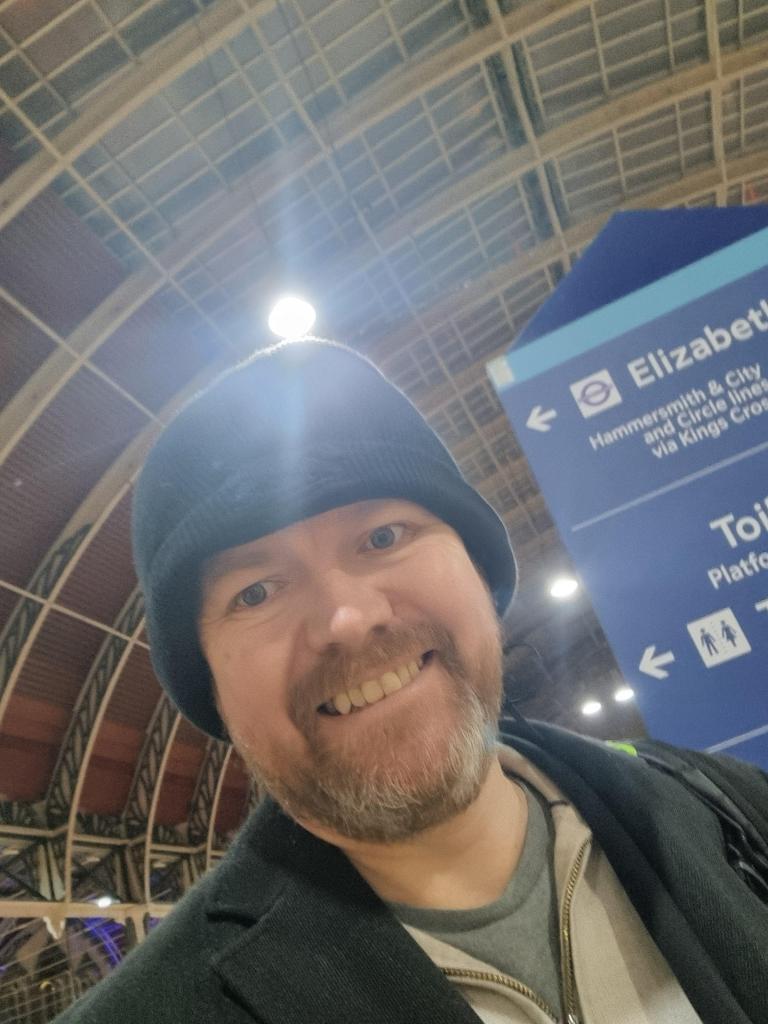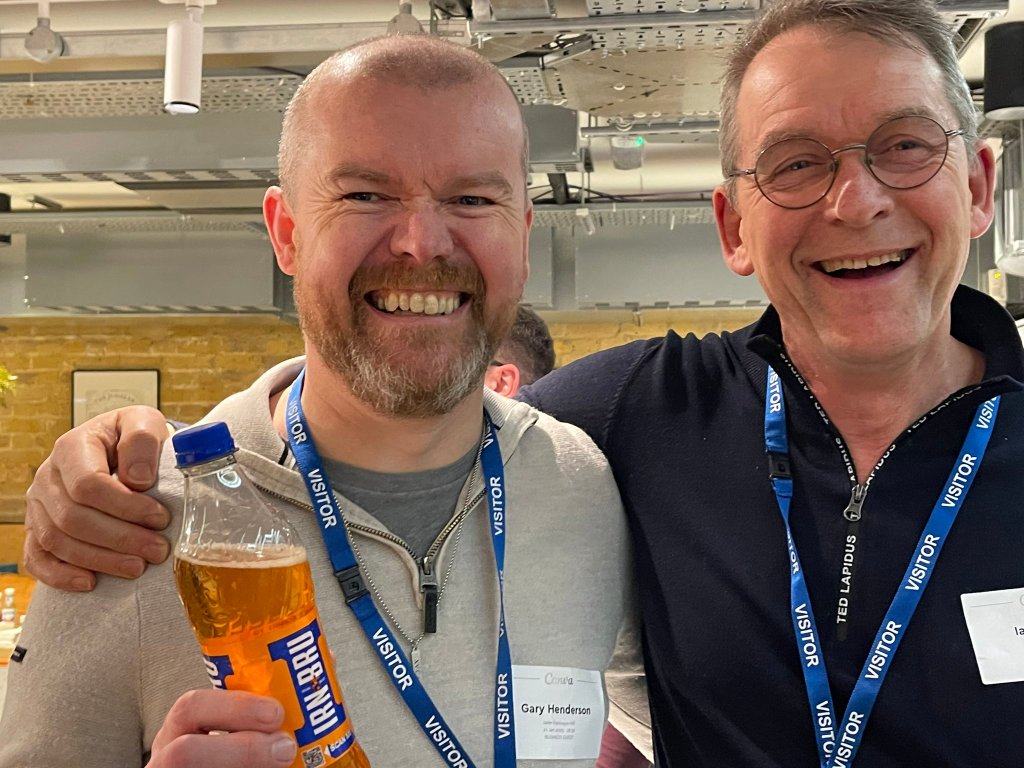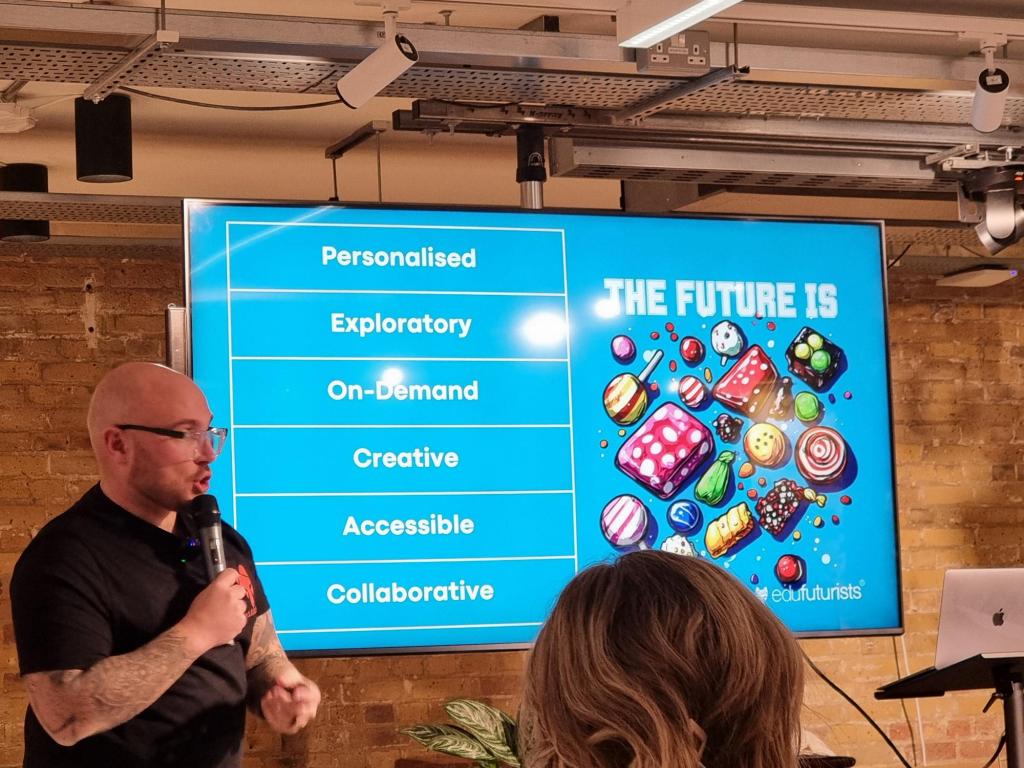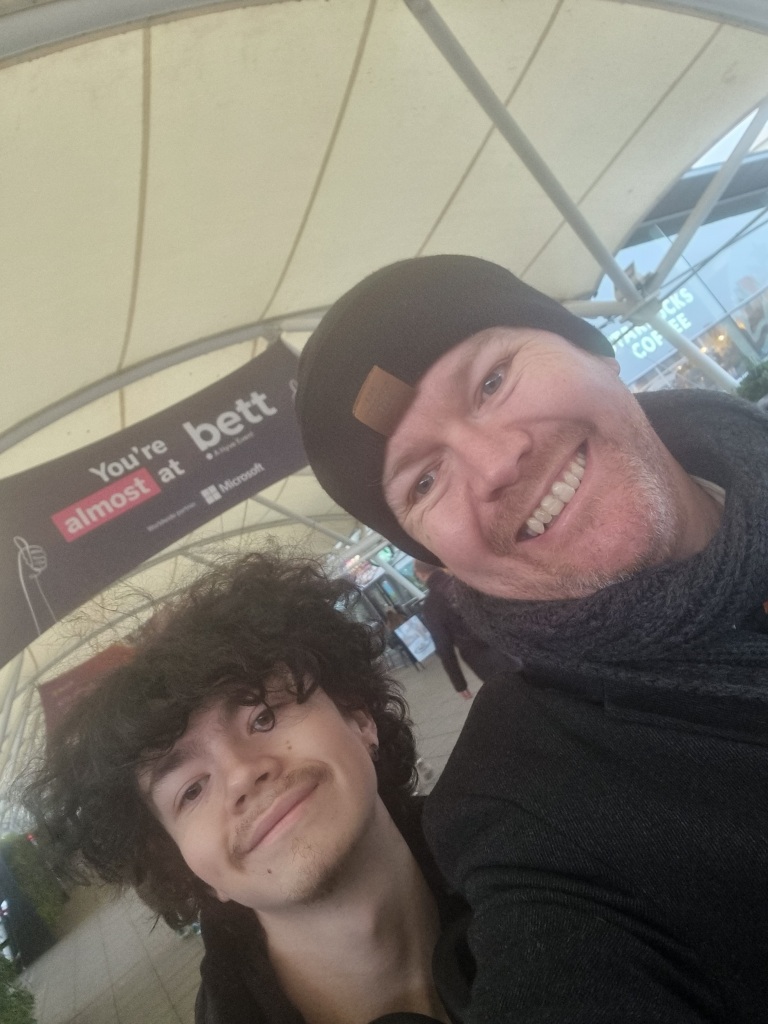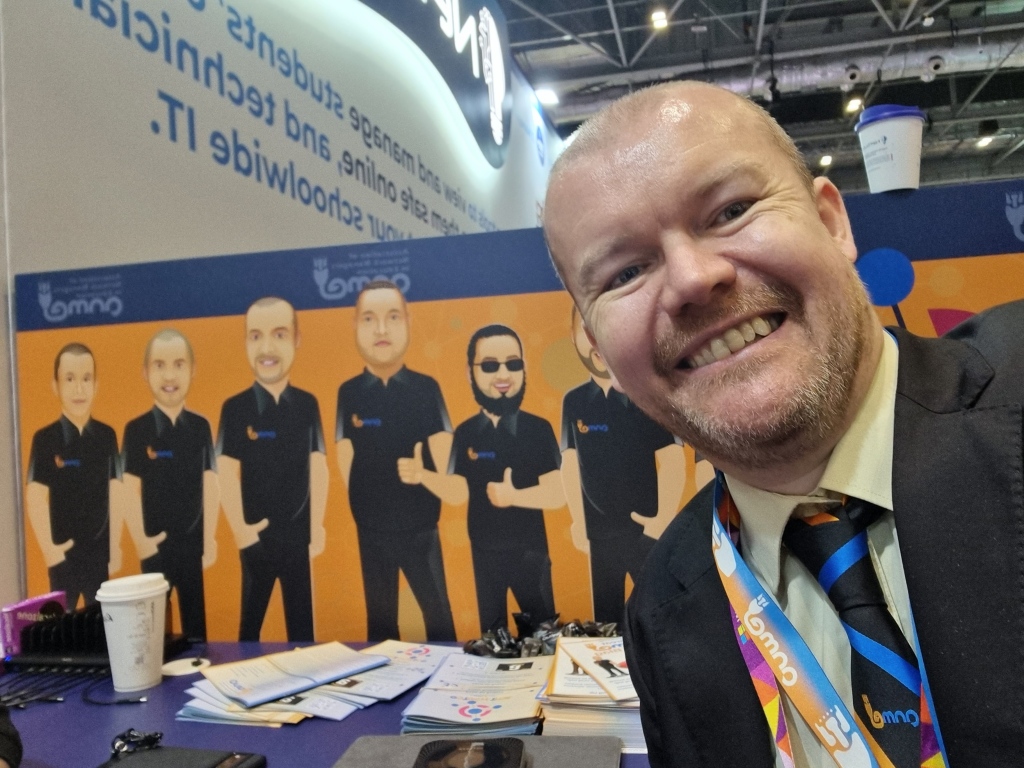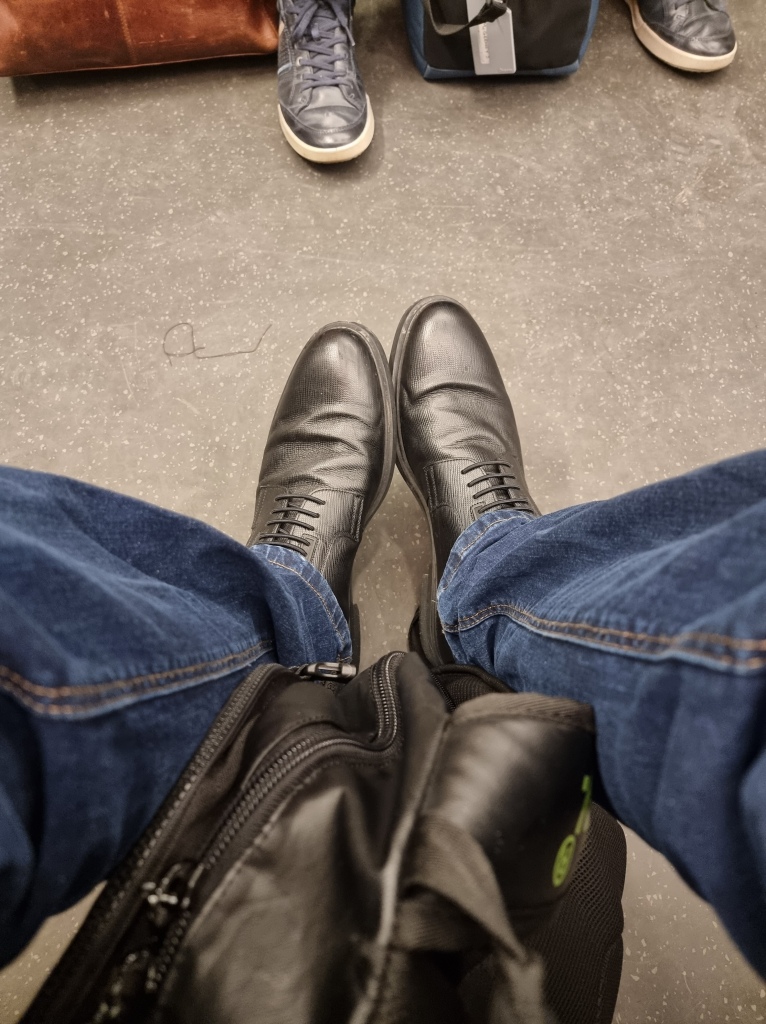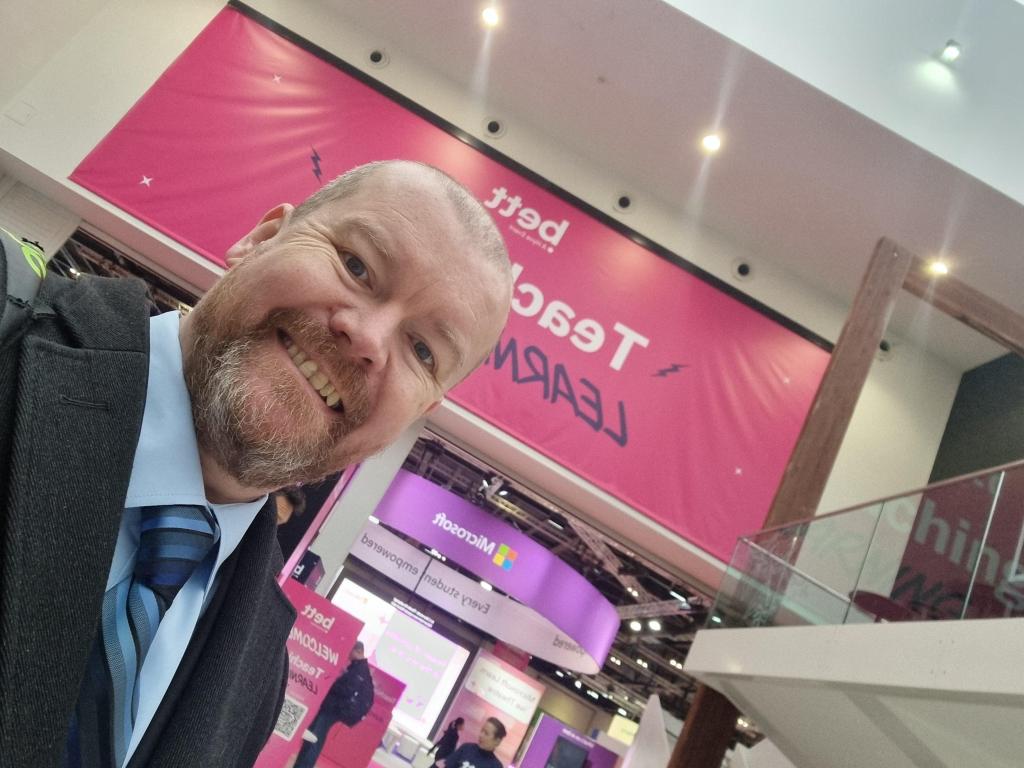
Continuing on my reflections of the BETT conference from my previous post, I found sir Stephen Frys discussion with Dr Anne-Marie Imafidon to be quite interesting in the exploring “science reality” and how some things science fiction have come to pass, plus in looking at how Artificial Intelligence (AI) has actually been around for some time. In terms of science reality, I did a presentation last year where I referenced an episode from Star Trek: The Next Generation, where it appears that captain Piccard is using a device very much like an iPad or other tablet device. It is notable the episode aired in the 1980’s and focused on events from the 23rd century, when in fact the iPad made its appearance in 2010. For me this highlights that science fiction sometimes presents us with novel and interesting ideas, that people then seek to make happen. It also highlights that we are pretty crap at predicting the “when” of things with any real accuracy.
In terms of the longevity of AI, the concept has been discussed since the 1950’s with period of progress and then periods of quiet, with one particular quiet period known as the AI winter. The reality is that the current progress of AI, as discussed by the sir Stephen and Dr Imafidon, is likely the juncture between increasing computing poor and increasing “oil fields of data”. I found the point regarding how we “sleepwalked into the internet age” interesting, highlighting we cannot do the same with AI, but did we truly know what the impact of the internet was going to be, so can we truly know what the impact of AI might be? I also found discuss of how social media focussed on “maximising engagement” to hit the nail of the head especially when this was expanded to include maximising bias, hatred and other negatives. The term socio-technical skills as something we should possibly seek develop, was a new one on me, but I can see the point.
The discussion then progressed to education and assessment categorising the implications of ChatGPT for cheating as a minor issue brought about by the education system we currently have. This aligns with some of my views on the need to reform education. Education is not about tests or coursework, it is about learning. It isn’t about grades. I found the comment regarding our current system “testing for ignorance” and then pushing it, to be a particular telling and critical assessment of the world we consider to be education. In the roundtable on assessment I took part in, that was one of our discussions regarding how coursework and exams are simply scalable for use across different schools, regions and countries, so we use them due to this scalability rather than because they are the best thing for education or for learning, or for our students.
As the discussion moved back more towards AI there was an interesting discussion on AI development in terms of how we often describe AI as currently being the worst it will be, and that it is constantly improving. This is fair to a point but sir Stephen referred to the internet as “filling with slop” and “contaminated” and if we assume that AI continues to use the AI in its training data then it too may become contaminated so it maybe possible to suggest that AI might be at its best now and only get worse as it becomes more contaminated by its own “slop”. And who controls the AI and its development. It was suggested that the three worst options might be the three groups most likely to lead the way on AI development, being countries, corporations and criminals. In all three cases I can see the outcomes being far from positive and we can already see the internet being used to political and national ends, for pure commercialisation, consumerisation or profit, or for crime.
I could likely write a whole series of blogs based on the session by sir Stephen and Dr Imafidon however rather than focussing on that I just want to share how they finished the discussion, on the need to find the “sweet spot”. The need to find a balance between pessimism and optimism. Now this aligns very much with my view of balance, in that most good things will have some balancing drawbacks or challenges. We need to try and find our way and find the best middle group, the “sweet spot”.
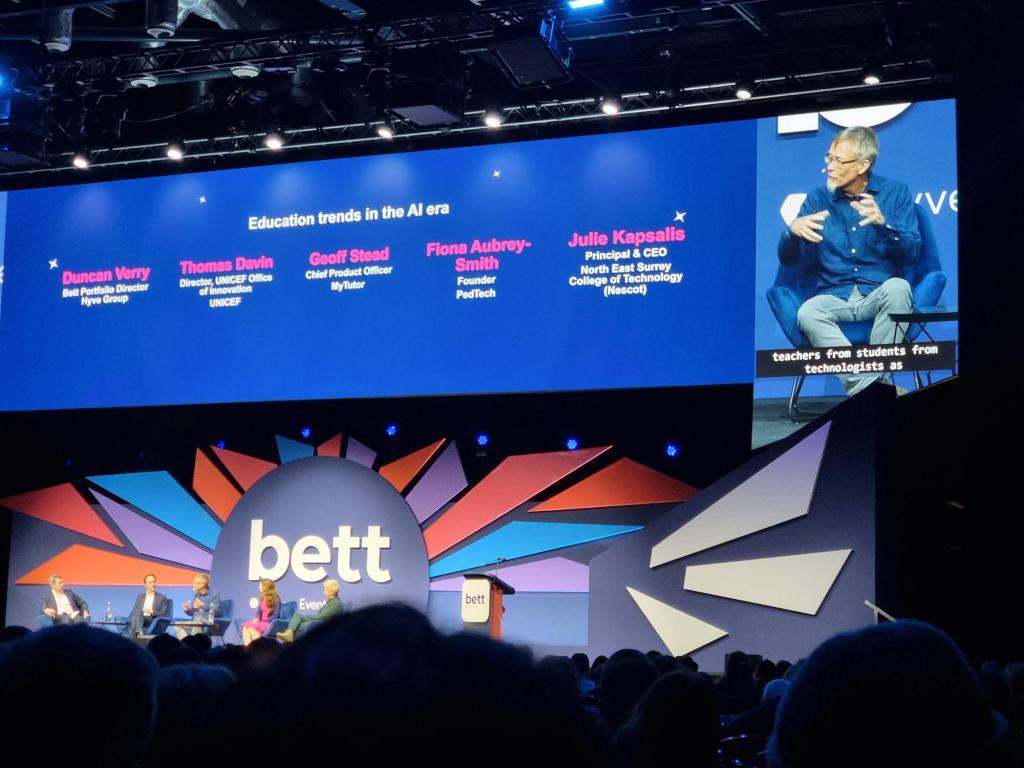
The next session I watched before hitting the BETT conference floor was a session titled “Education in the AI era”. Again I could write a lot about what was said as I found it to be very interesting indeed but am going to avoid doing that. One key comment mentioned 30% of teachers not using AI; My sense is this figure is lower than the reality. The data came from TeacherTapp which I think is great, but I also think that the subset of teachers using TeacherTapp are likely to be those who are a little more tech savvy and therefore likely to use AI, and that a greater proportion of those who don’t use AI will also not be using TeacherTapp. The bigger and possibly more important question is why some teachers who know of AI aren’t using it; Is it they don’t know they are using AI, but are, that they don’t have access, lack training, lack confidence or something else? In terms of access, this session also mentioned access to technology and affordance, which to me links to the concept of digital divides.
I also liked the discussion on banning and blocking AI where they compared it to knives in food tech. Why would we ban AI in some or all subjects when we know knives can be dangerous, yet don’t ban them? Now I know that this is a very simplistic and flawed analogy and that it was likely used for effect rather than accuracy, but I think the point is valid; How often has prohibition of anything ever been beneficial or effective? It just tends to make people do it more, but do it in secret.
This session finished on the big question, which had also been raised the previous night at the Edufuturists event, in terms of what the purpose of education is? In terms of what we measure, tests, coursework, grades, are these what truly matters? And if not, what does matter, and how might we measure it, assuming we need to?
That’s some pretty deep questions to end this post on, but that’s where I found myself and I was still in the morning of day 1 of BETT. The afternoon would see me getting around the event and doing the networking side of things, which for me is one of the main benefits of BETT, but the sessions from the morning, and some of the other sessions I attended across the conference were also very beneficial in stimulating thoughts and ideas, and in some places in confirming or challenging some of my thinking. Next BETT post to follow soon……….


